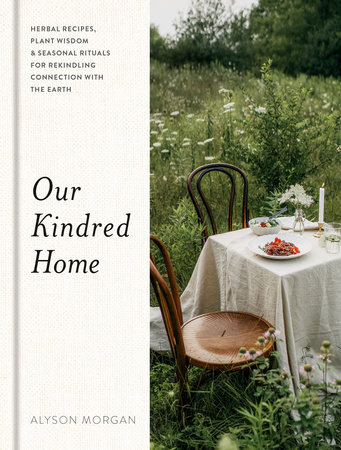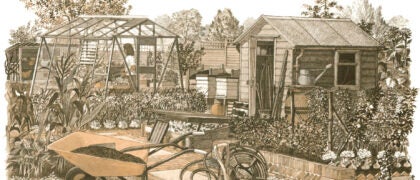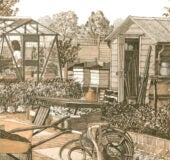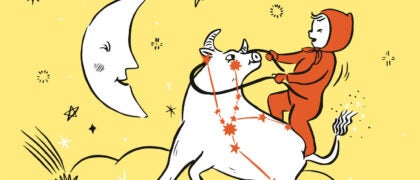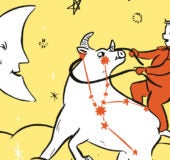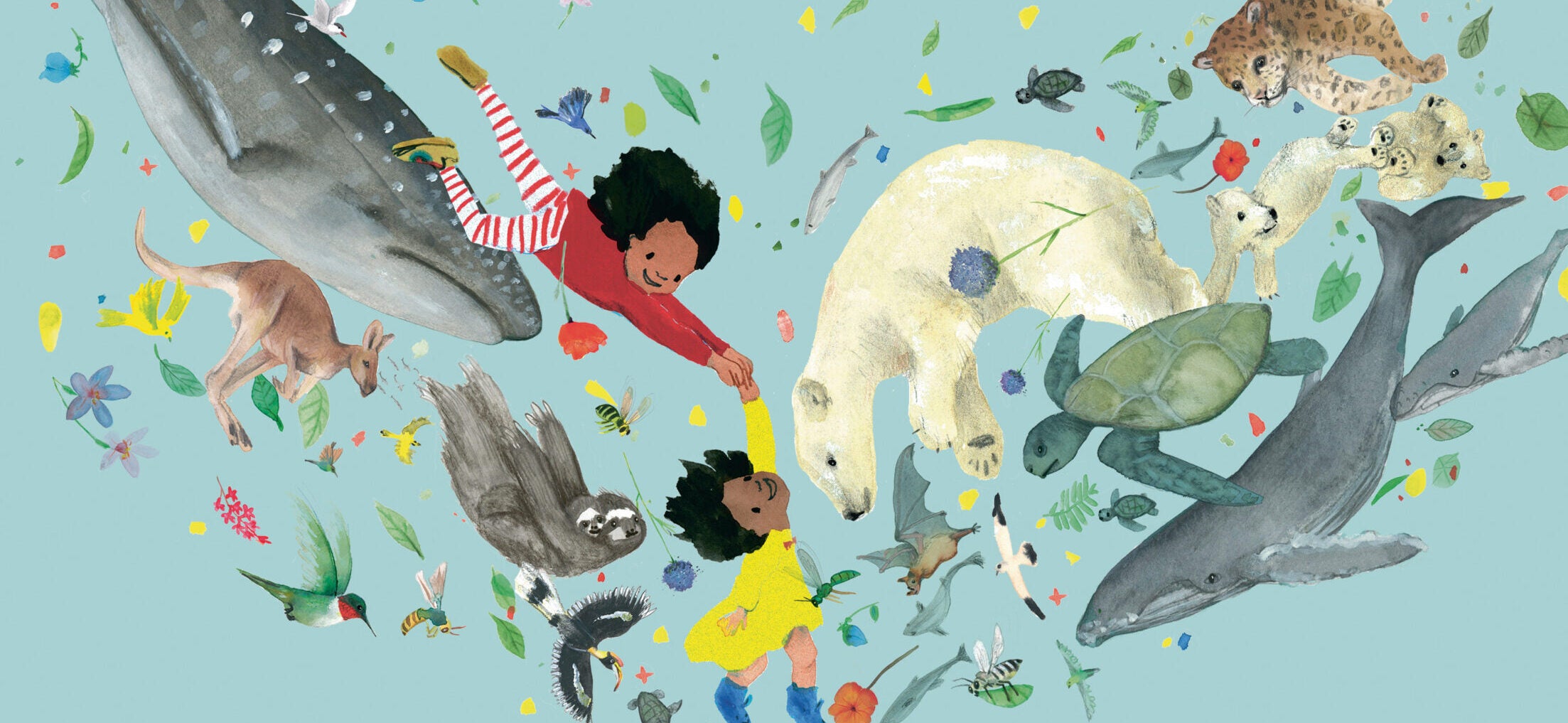IntroductionMuch like the living world around us, our bodies are complex ecosystems, home to water, fire, earth, wind, and spirit.
Emotions swell. Like waves on the brink of cresting, rising within my body, carrying old stories, old feelings. When my emotional waters have been calm for some time, the rising tide of self-hatred is the one that can take me under so quickly. I gasp for air at the thought that I can even hold such loathing for myself. I found that, much like a riptide, fighting the wave makes it harder, so I must ride it out. I used to wholeheartedly believe the stories these swells tell and take them for truths. I know now the true origins come from a dark and ancient sea not of my own making, a sea not unlike the one that carried my ancestors in the belly of a ship. Understanding its origin does not make it any easier to feel, but it does make it easier to not be wholly engulfed. Life contains mystery felt yet unseen that we cannot quite comprehend.
My buoy in this sea of darkness is joy. The stars and the moon are anchors outside of myself, whispering, “You do not travel alone; when you are lost, we can be your guide.” I’m learning to allow my emotions to fully surface, letting the salt water of my tears cleanse me. The only way through is to feel. When I began to listen attentively and value my own inklings, it opened a new world and allowed me to rebuild a relationship of trust within and the ability to discern information in the outside world. My unlearning and relearning began when I started listening to plants.
I never understood the gravity of heaviness and pain I carried in my brown body in this white-dominated society. I don’t think my mother quite understood it either. Why was I so sensitive and so affected? More than emotionality, I felt something deep in my bones and blood. Gifted and woven together by the threads of my diverse ancestry, known and unknown, Afro Indigenous, Haitian, European, place, stories, and languages are sown into me. The threads of my ancestries span continents and oceans. My body is the keeper of their stories and the pain of both the colonizers and the enslaved. Nestled between sinew, nerve, and tendon, I hold acute pain of being stolen from homelands and concurrently dogged resilience of surviving it all. We all, undoubtedly, hold more than we are aware of.
Our bodies are our primary and sacred vessels for the time we travel here on Earth. From the moment we are born, our first language is our senses. The vibration of our mother’s heartbeat is the first we experience, the warmth of the skin, the taste of milk, and from those very moments we begin to process information about the world around us. Is it safe, am I loved, am I fed, are my bodily needs met? We learn from these first moments, through sensory information, for months and years of our lives before we learn language. It informs how our nervous systems and our brains become wired.
I was loved, fed, and held, yet my own pain was brought to light in a car accident in high school. Physical trauma laid bare emotional trauma. With my corporeal vessel cracked open, the light poured through my wounds, and this trial became my initiation. I could have died at sixteen years old, but I see it as the day I was born. At this tender age, I was made aware how precious and fleeting our lives in these human bodies are. We are here for a blip on the timescale. That accident changed me physically, spiritually, and mentally. I wanted to live my life to the fullest now that I knew how short life could be, but I felt stifled by toxic relationships to myself, my body, and to people around me. A deep sense of disconnection haunted me.
Throughout my journey, I’ve learned how much trauma is stored within my body. This unprocessed trauma caused nervous system dysregulation, triggered by continuing racial and cultural wounding. To truly begin on a path of healing, I needed to find safe space and ways to ease my nervous system and befriend what I was carrying. I found safe space in the garden and a nostalgic ease with the natural world. I am grateful for years of access to mental health resources, body work, and somatic practices. Yet there is so much wisdom and healing to be gleaned from daily rituals and deep connection with plants. I’ve learned safe ways to ground myself into the soil of my being. Plants are a catalyst for deeper healing, and when they were woven into my daily practices, I found a sense of balance and ease. There are so many resources out there that teach us the constituents of plants and their biochemical processes, but I want to return to the root of plant connection. Our ancestors connected with embodied awareness and practices to form relationships with plants to weather storms, for seasons of lack and abundance, incorporating that relationship into simple yet sacred daily practices for nourishment, healing, resilience, and community care. So many of us have lost that knowledge and in turn are lost.
This book is about plants because plants want to be our guides through this season of humanity here on earth. Plants are our ancestors, and they want us to recollect and retell their stories and to weave them into our lives. I want to convey the intimacy, serendipity, and magic I’ve found in my relationship with the natural world, because connecting to the spirit of more than human beings is healing.
A plant isn’t just a plant. Plants are the basis of our food, homes, clothing, and medicine. In these times of great chaos, plants are reaching out for kinship, whether in the forest, cultivated on your windowsill, or growing outside your office window. There is deep nourishment for our nervous systems and relationships available to be called into service. When I became too overwhelmed with the awareness of my own trauma, of my ancestral and intergenerational pain, the struggle of living in a Black female body in a white supremacist society, and my own internalized feelings of inferiority, the antidote was somatic awareness through yoga, attending to my body’s wants and needs, and a deep listening to plants. Chamomile helps me rest and digest. Tulsi’s scent immediately grounds me when I’m panicking and trying to navigate the climate crisis with two young children. Lavender lets me know in this present moment that serenity is safe. The solution for me has been to slow down, to cultivate awareness in what’s happening in my body, to connect to the seasonal and cyclical shifts around me, and to incorporate the plants in simple, comforting, nourishing yet meaningful ways throughout my days to remember the joy of being alive.
From a warm beverage on a cool, crisp fall morning to a cooling herbal shrub in the oppressive heat of summer, herbal steams for spring allergies, or a lavender dessert to ease social anxiety and create an environment of relaxation for friends and folk gathering at your table, plants help us find ease. Some days it only takes a woodland walk to ground me into the present moment; other weeks, nettle infusions pull me up and out of the slog and doldrums of depression.
Not only do plants offer us immediate sensual support, but the knowledge of the plants in our immediate environment helps us connect in deeper ways to our ecosystems and can provide resilience in changing social and ecological landscapes. Do you know which plants aid with wound cleansing and healing, what plant underfoot can soothe a bee sting? Do you know what leaf can help with diarrhea? These are folkways our grandmothers and grandfathers knew, and in cultivating that knowledge, we can build somatic resilience and pass on folk traditions for survival.
The right relationship with the natural world teaches us lessons of reciprocity, of uncertainty, of our true interconnectedness. I share my personal reflections with you out of my greatest hope that plant wisdom can help you on your own journey of understanding yourself, your place, and your ability to process what life circumstances come your way.
We are living in a time of an unveiling, of the collective uncovering of systems of great harm, of destruction, and of exploitation. Colonialism, oppression, racism, and systematic disconnection from nature have existed here for centuries, informing our bodies, passed down from generation to generation. We bear the scars on our hearts, bodies, spirits, and our earth.
There are things we can no longer collectively sweep under the rug. Our human experience can feel wholly overwhelming. Our nervous systems are overloaded, and our responses vary from numbed, escapist, denial, and disassociation. But we cannot run— our lives, I believe, depend on staying and confronting all we’ve shoved down into the depths of our collective unconscious. Plants can help us create safe space to process, to find joy, and to transmute our personal, collective, and ancestral trauma. In the journey into the depths of our experience, we can mine pearls of wisdom to bring back to the surface of our experience to find more joy and levity.
Copyright © 2023 by Alyson Morgan. All rights reserved. No part of this excerpt may be reproduced or reprinted without permission in writing from the publisher.





